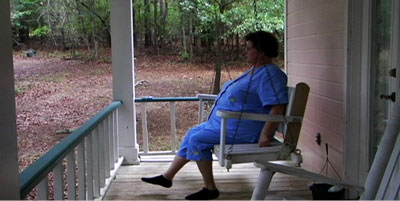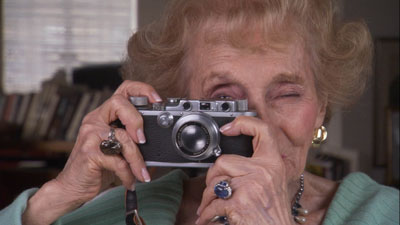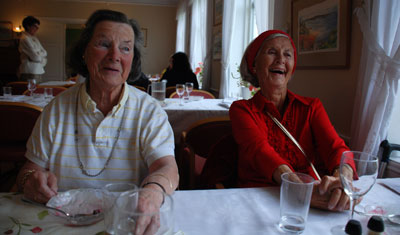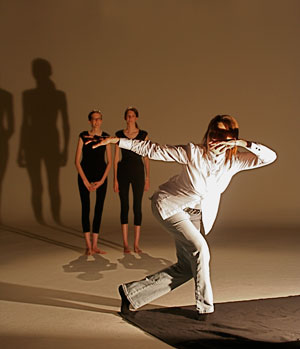Mississippi Queen charts the mission of a prodigal daughter returning home to find much-needed answers. Paige Williams travels across the country and through the years, as she explores the distance between her upbringing and her current lifestyle. The south stands as the backdrop and her parents, Jerry and Judy, as the main characters. Conflicts are as thick as grits. Growing up a good Southern Baptist girl, Paige learned to love God, first, and then her family. However, her senior year in high school would lead to a relationship with a girl, and all that would turn on its head at the Waffle House, involving an angry mama in a truck, gun included. Over ten years later, Paige attempts to find balance in her commitment and marriage to a woman and the fact that her parents run Mississippi’s only ex-gay ministry. The journey is not easy for anyone involved, but it does make for one good story…. However, this tale goes beyond just Clinton, Mississippi, and the Williams family. It is about the south, where there is a distinct queer culture that manages to thrive despite the religious fervor or, perhaps, because of it. Images of churches and religious signs swoop past, illustrating the inability to escape Christian ideals. The film is about being different under a microscope. Living in a place where people are painfully aware of what everyone thinks of them, where appearances mean everything, and “Where do you go to church?” is often the most important question making someone with an atypical sexual preference stand out like a scarecrow in a cornfield. Paige interviews gays who find no incongruity with practicing a homosexual lifestyle while still going to church. One college professor manages to find peace despite the turmoil around her and even teaches Sunday school. Then there are those who feel they can’t be a part of religion without being judged. Arthur, who spent a great deal of time in his church as a child, before being outed and bashed across the pulpit, is torn between anger and indifference. He keeps on singing to the Lord, though. Another woman, Paula, had to leave the church she loved for not being accepted completely and has to rely on her own spirituality now instead of religion. Then there are those who are still searching, like Wisdom, a priest’s daughter, who is not ashamed of being a lesbian but wouldn’t want it to affect her father’s livelihood. Or the young girl whose mother fears for her life and forces her to go to The Williams’s classes, even though Cari doesn’t think there’s anything wrong with her. Perhaps the most compelling stories, though, come from the former homosexuals who converted, often after much struggle, due to their commitment to Christ and the wish to no longer sin. They seem resigned to their choices, many describing the change with terms normally reserved for warfare. Some are more content, like Wendy, who says she can find joy with a man one day. On the other hand, there is Sarah, who admits she never will be attracted to men, but that it is better to be alone than to be with another woman. There is the CEO of Love in Action, who himself had to overcome his attraction to men, then turned around to found a program to aid others in their transformation. There is Joshua Morgan who grew up embarrassed by his sensitivity and interest in girlish things and tried for years to live life as a ‘normal’ man, until his marriage ended and everything fell apart. Now he also works at Love in Action as their Communications Manager and tries to help others in the same situation. Paige also revisits her old church—looming much bigger and more influential than when she attended in her youth— to visit the preacher there, wondering if he will try to save her as she used to try to save others as a child. Dr. Belser tells her that those living a life of sin cannot find the righteousness of God with that behavior. He looks to the Bible as his support, mainly the Old Testament. Using the Bible as justification for denouncing the homosexual lifestyle is a common theme throughout the film, actually, and makes for some interesting scene juxtapositions. At the heart of the film is the middle ground where Paige and her parents attempt to meet. They don’t always get there, but the making of Mississippi Queen helps them get a little closer– to God and each other. Perhaps Judy puts it best, though, when she says, “Let God be God and let me just be your mama.” Everything else will eventually fall into place.
Summary info for schedule – will be hidden on film page

Mississippi Queen
63-minutes
Mississippi Queen follows Paige, a southerner returning home, digging past the mask of hospitality examining the ex-gay ministry, interviewing southerners on both sides, including her parents who help convert homosexuals.
Screening day / time
Check Back Soon
Mississippi Queen
Filmmaker(s)
Filmmaker info pending
Running Time
63 minutes


